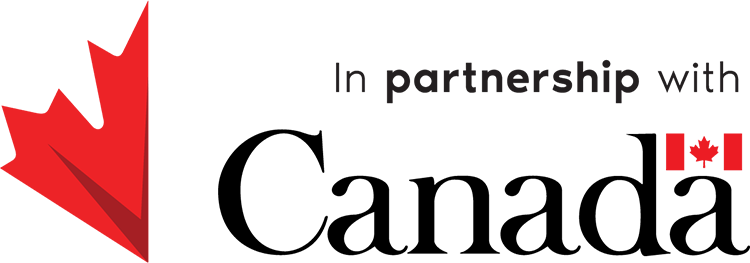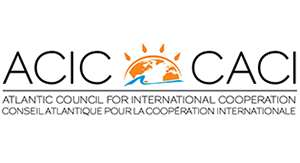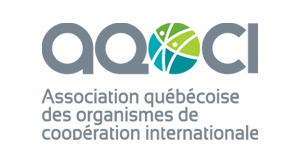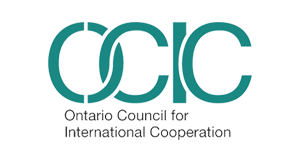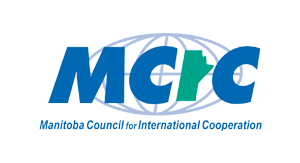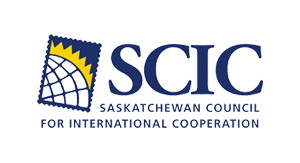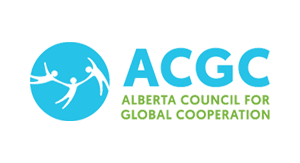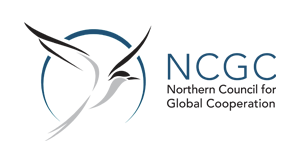- Skip to primary navigation
- Skip to main content
- Skip to primary sidebar
- Skip to secondary sidebar
- Skip to footer
Youth Champions Program
Meet our 2021 Youth Champions
Spur Change is pleased to present our 2021 Youth Champions cohort! These youth are joining us from all over Canada and the world to participate in the program. They are skilled in public engagement, are committed to the Sustainable Development Goals (SDGs), and are leaders in their communities. Each bring their experience and passion for gender equality and the SDGs, and a willingness to collaborate with peers and mentors.

ADRINA JUSMA
Bio coming soon.
Partner SMO

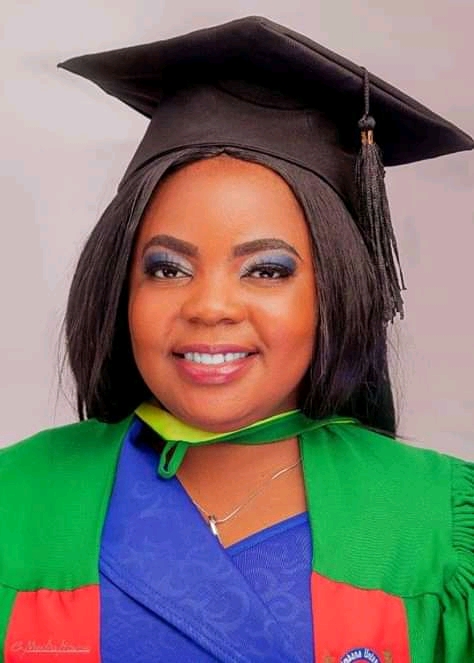
Partner SMO

AGNESS BANDA
Agness Banda, born in 1995, is originally from Lundazi, Eastern Province of Zambia. She is an orphan whose mom died in 2006 leaving behind 5 children: 4 girls and 1 boy. She recently graduated with a degree in Primary Teaching with merit. She started an internship with VIDEA in August 2020 and has been part of VIDEA’s education program for many years. She currently lives in the city of Lusaka.
“As a girl with a passion for wellbeing, expect me to answer with Goal 3: Good Health and Wellbeing. This is because global health involves social arrangements, justice, health economics, poverty, hunger, etc. Looking at the sustainable development goals’ agenda, one can only conclude that good health is both an essential outcome as a key enabler of sustainable development and a building block in a framework of interaction with other SDGs.
For instance, for Goal 2: Zero Hunger, good health cannot be achieved without the access to sufficient nutrition. In addition, improperly managed agriculture can damage health severely.
Another example would be for Goal 13: Climate Action. As a result of climate change, the effects of extreme weather events (i.e.) storms, floods, and heat), the effects on our natural system (i.e. availability of fresh water, crop survival, and spread of diseases by vectors), as well as the effects on our economic and social system (i.e. scare resources, violent conflict) make achieving Goal 3 impossible without global action.
Therefore, health is a crucial human right and contributes to society through reduced expenditure, productive employment, gender equality, and social cohesion, among others.”
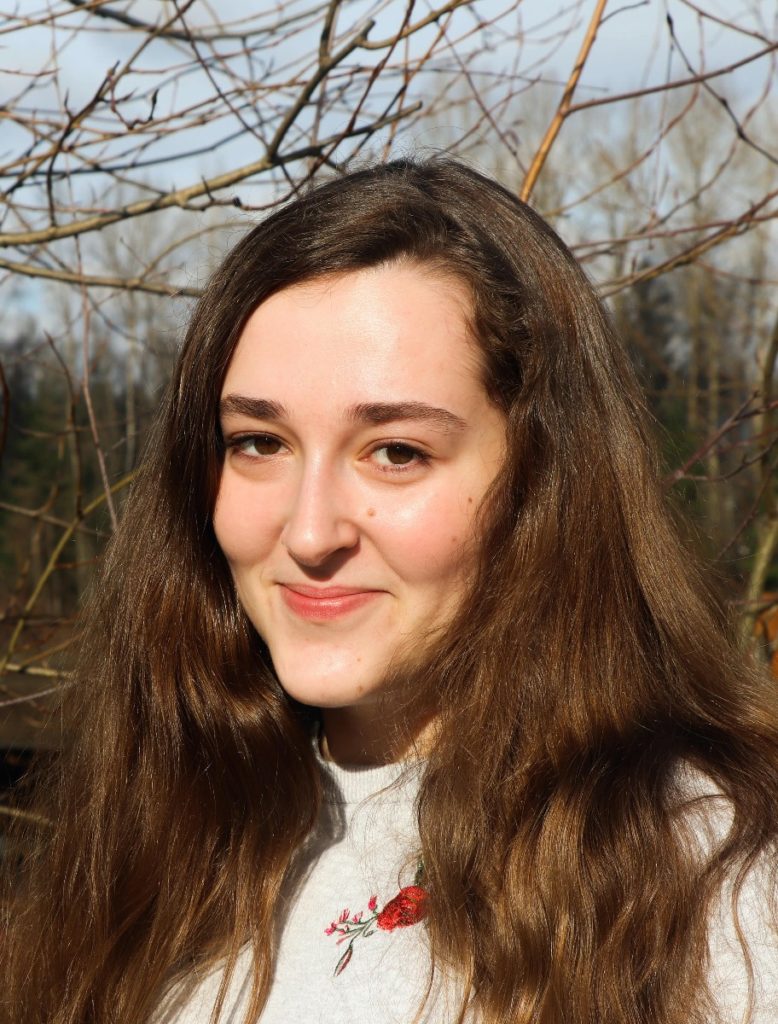
ALICIA DYCK
Alicia Dyck is a fourth-year student at the University of the Fraser Valley (UFV) pursuing a Bachelor of Arts degree. Her areas of study consist of a double extended minor in Global Development and French. She is also a part of the university’s WUSC club, which focuses on sponsoring refugees to come live and study at UFV. She is very passionate about justice, and intends on incorporating this passion into her future career, hopefully in pursuit of a law degree.
“It’s hard to choose only one Sustainable Development Goal that I care most about, so I chose two, SDG 5, Gender Equality, and SDG 13, Climate Action.
SDG 5 is very close to my heart because just like almost all other women, I have experienced gender inequality in my life, and have suffered from it. I think that I care so much about gender equality because I understand how it feels when it’s not assured. I hope that I will be able to continue to promote this SDG throughout my life. As of now, I have done an internship with a South Sudanese non-profit that has a focus on promoting gender equality. I was able to do a lot of research about gender inequality in the country, especially surrounding sexual and gender-based violence and child marriage.
I also am very passionate about SDG 13, Climate Action. I try to live my life in a sustainable way, and always continue to learn how I can be better to protect the environment. Climate action and sustainable development are simply necessary if we want to continue to live on Earth. Although action is also needed at a higher level to stop companies from pollution and environmental exploitation, I still truly believe that our own individual actions can make a difference.”
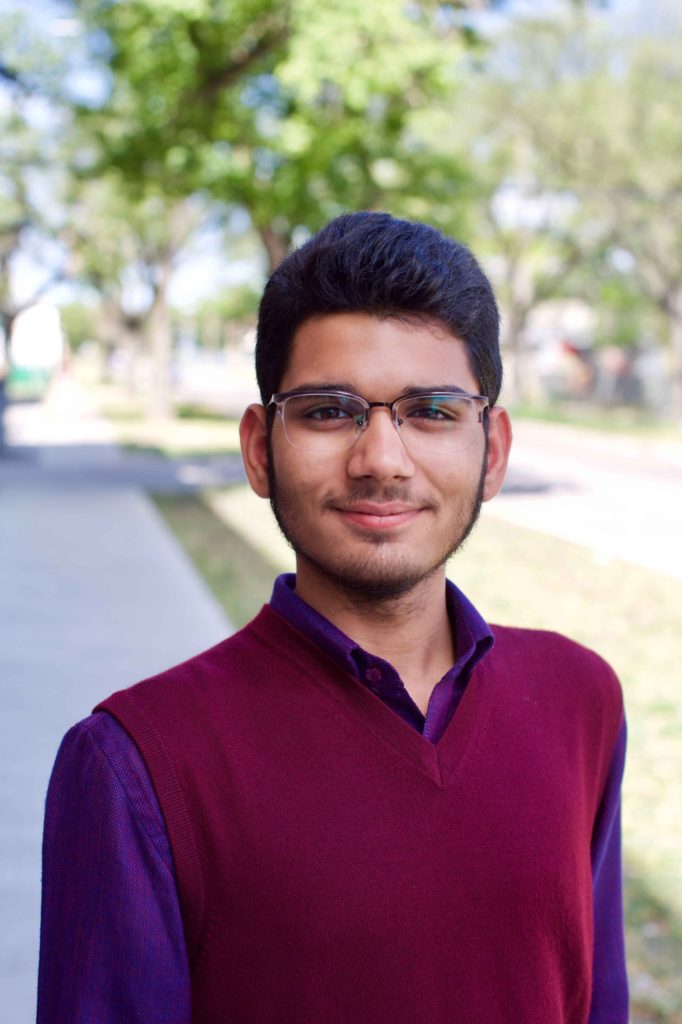
ARSHPREET GILL
Arshpreet Gill is currently in his first year at the University of Manitoba. While studying, he works part time at a local law firm in Winnipeg, and at a local MLA’s constituency office. In his free time Arshpreet is working towards studying International Law and trying to accomplish his bucket list such as getting a motorcycle license, learning to fly, and saving money to travel. Arshpreet strongly believes that there needs to be selfless global leadership to solve our current global issues. Arshpreet’s career plans are to work for the UN and Global Affairs Canada to help and work with global citizens to find and implement the solutions to the global issues.
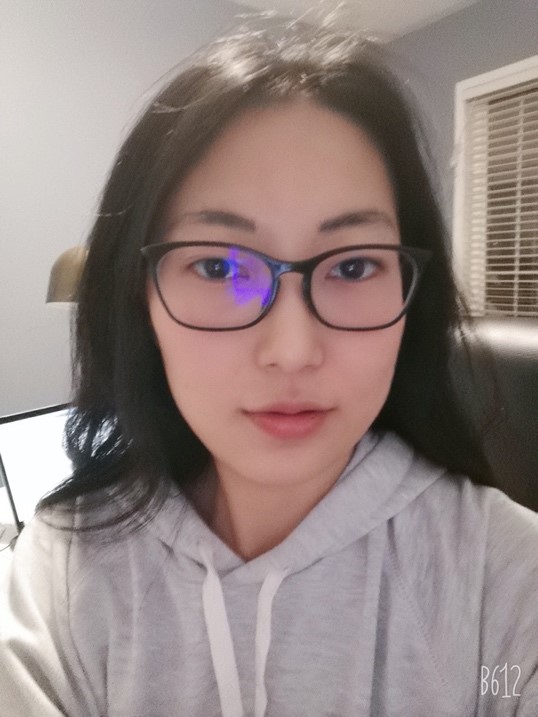
CLAIRE BIWEI ZHANG
Claire Zhang is a bilingual economist with an interesting dynamic, driven personality and an entrepreneurial attitude. She is an economist in the Investment, Science and Technology Division, Economic Statistics Field at Statistics Canada. She is also an AI researcher at NEXTCON-SCVI-Lab, where she is working on applying AI Techniques in Autonomous vehicles. Outside of work, she strives to promote civic engagement and community-building, and draw attention on both well-being and urban development issues. She loves swimming, doing yoga, and listening to podcasts on tech policy.
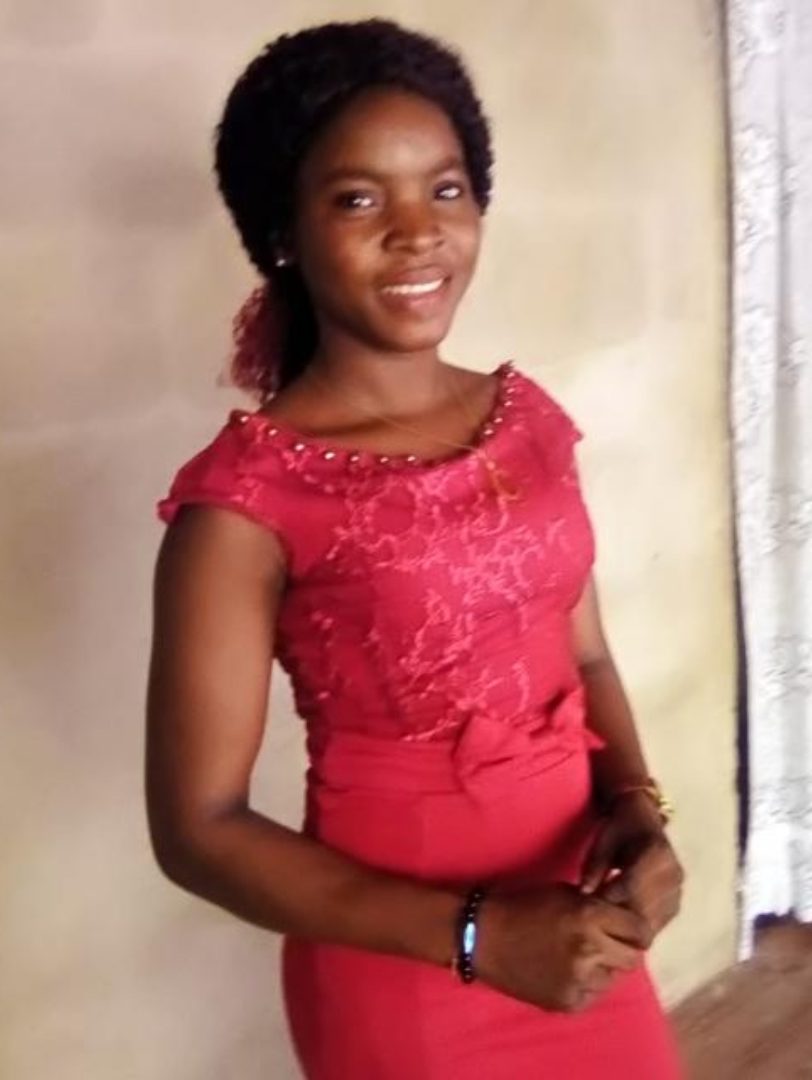
Partner SMO

BRIGITTE TÉNA N'KOUIE
N’KOUEI Téna Brigitte is from the Republic of Benin. She has a Baccalaureate A2 and is currently a third year student in linguistics with a French teaching option, and a journalist for the university press (Le Révélateur). She is involved in several social causes and is part of the mouvement for the fight against sexual harassment in universities set up by the NGO ALCRER in 2020. Since October 2020, she has been a member of the NGO JEDAFEM (Jeunes engagés pour le développement et l’autonomisation de la femme), a youth-led organization whose objective is to promote the SDGs with a particular focus on the empowerment of women.
“I care most about the SDG 5 – Gender Equality.
In my opinion, as soon as we have eradicated all forms of inequalities and violence, specifically those relating to gender, and as soon as we have achieved the empowerment of girls and women, these will contribute to an improvement at all levels of society.
I say this because, particularly in Africa, these represent significant obstacles. The development of a world must begin with the development of the family. The girl / woman is the family.”

DEENA WATSON
Deena Watson is VIDEA’s Project Officer and a student at the University of Victoria, majoring in Indigenous Studies and Social Justice Studies. Deena is a proud member of Mistawasis Nêhiyawak located on Treaty 6 territory. Deena is also a former International Aboriginal Youth Internships Initiative (IAYI) intern where she was placed at a non-profit organization in Uganda for four months to gain knowledge on global human rights and promote gender equality. She is a strong advocate for Indigenous women and girls, and supports the intersectional theory of Indigenous feminism that practices decolonization, Indigenous sovereignty, and human rights for Indigenous women and their families.
Partner SMO

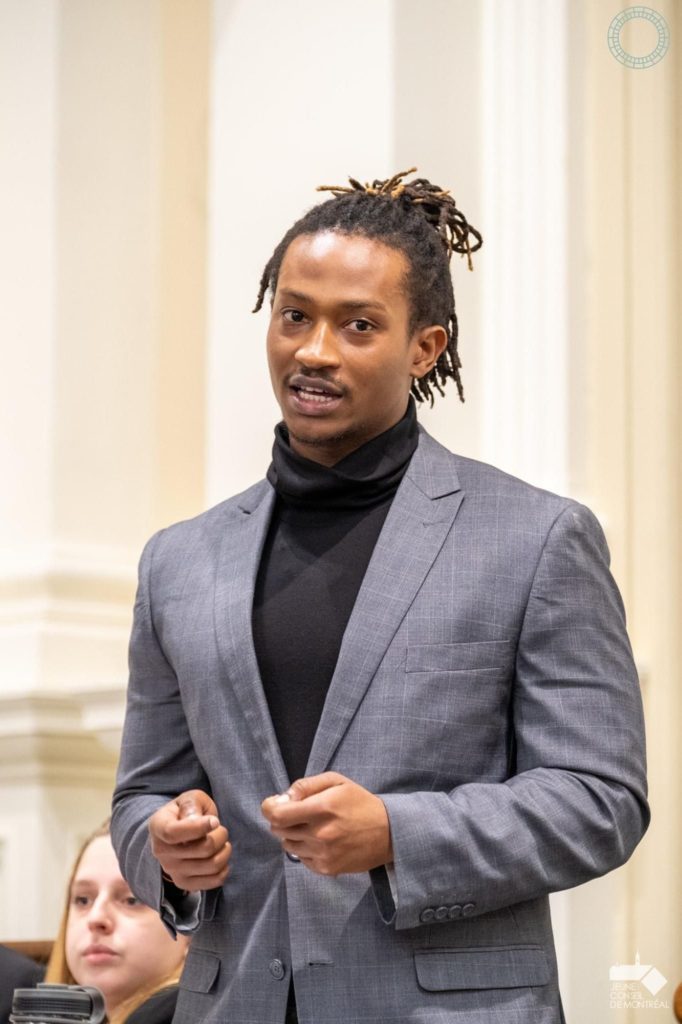
FRANCK RWAMO
Franck Rwamo is a graduate from a Bachelors in Political Science at UQAM. During his academic career, he was also involved in many organizations in his community. He is very interested in the issues surrounding international cooperation and education. He also had an internship relating to international cooperation in Ecuador, in a small indigenous village called “La Moya”. The objective of the internship was to work with the women and girls of the community in order to develop several projects collectively. He hopes to have other opportunities at the international level to contribute to the development of other projects like those.
Franck enjoys training, reading, chatting and laughing with others. He hopes that the training offered by Spur Change will give him innovative ideas to develop new projects within our global community.
“I think the SDG that is most important to me is access to quality education.
I think that this theme almost covers all the other inequalities we face in our society because people can be actors promoting a positive impact on many issues around us. Through education, we can rethink different political structures and different ways of acting to solve many problems on a global or local scale. We can, for example, implement several programs in education that could influence the causes that lead to racism, discrimination, and sexism. They could also decrease the inequality curve in terms of equal opportunity at the global level. With a better education program, more people can learn and be educated, and therefore we become more able to find innovative and sustainable solutions in the short, medium, and long term. We can develop more programs that can potentially, for example, lead to solutions to problems like malnutrition, help us to rethink an economy that respects the environment, raise awareness on the real causes which lead to the constant wars in underdeveloped countries, to develop greater empathy and solidarity with other international cultures and to properly train the future global citizens who will eventually have political, economic and social influence and power in the next generations.
It seems to me that education is certainly a very vague field, but it remains the main tool to spur change. In my opinion, talking about quality education is also defining how we can measure this quality. Making programs consistent is not going to make the education system better. It is essential, on the one hand, that this education system comes to reflect the realities of different societies to see how we can make it better and how we can ensure to provide adequate material and teaching to be able to solve the problems of each and everyone in the same society. On the other hand, it must rely on other global models to see which practices would be relevant on a more local scale. A final point that I will address is the very need to rethink quite simply, what is education.”
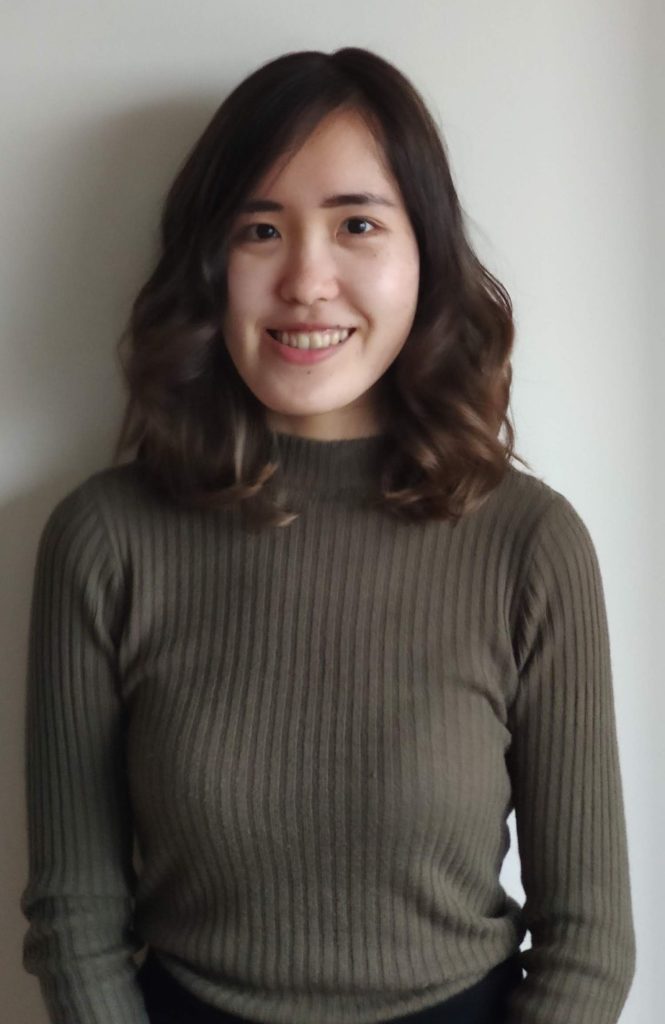
HARUKA AOYAMA
Haruka Aoyama (she/her) is participating in YCP from beautiful Nova Scotia. She is born in Okayama, Japan and came to Nova Scotia in 2016 to study at Dalhousie University. Her passion for discovering various cultures, nature, and ideas led her to study Political Science and Environment, Sustainability and Society (ESS) during her university years. She is currently working as a Legislative Assistant at Halifax Regional Municipality. Outside her professional job, she is involved in the Youth Advisory Council with the Atlantic Council for International Cooperation (ACIC) as well as in other volunteer opportunities related to climate change, sustainable development, and immigration/cultural inclusion in Halifax. She always enjoys learning. Now, she wants to take it a step further. She challenges herself to make small actions every day. She is excited for her new journey with YCP.
“Each 17 Goal is interconnected; yet, there are three (plus one) that guide my everyday work and activities.
Goal 6: Clean Water and Sanitation
Water is life. Sanitation is a basic need. COVID-19 highlighted how privileged it is to have access to clean and safe washrooms, bathrooms, public space, and even hand soap and sanitizer to keep you safe. Lack of access to clean and safe water and sanitation is one of the reasons why COVID-19 affects the most vulnerable.
Goal 11: Sustainable Cities and Communities
Living in a city and working in the Municipality made me realize the potential of cities in bringing about sustainable communities where diverse culture thrives and where people enjoy living and taking care of each other while protecting the environment. This is the area that I’d like to discover more about.
Goal 12: Responsible Consumption and Production
Goal 12 is a global goal as well as my personal goal and challenge. I remind myself to think about who is involved, which resource is used, and what waste is being produced in a product’s life cycle. Although this is a tricky goal considering international regulations, policies, economic systems, and political interests, I do believe that this is where individuals can make a change.
SDGs are said to be a blueprint for peace and prosperity for people and the planet. In that case, dignity and anti-racism should be one of the SDGs. To achieve the 17 Goals, combating anti-racism and using an intersectional lens is key. Without this ongoing issue being addressed and taken into consideration seriously, it is impossible to achieve sustainable development goals.”
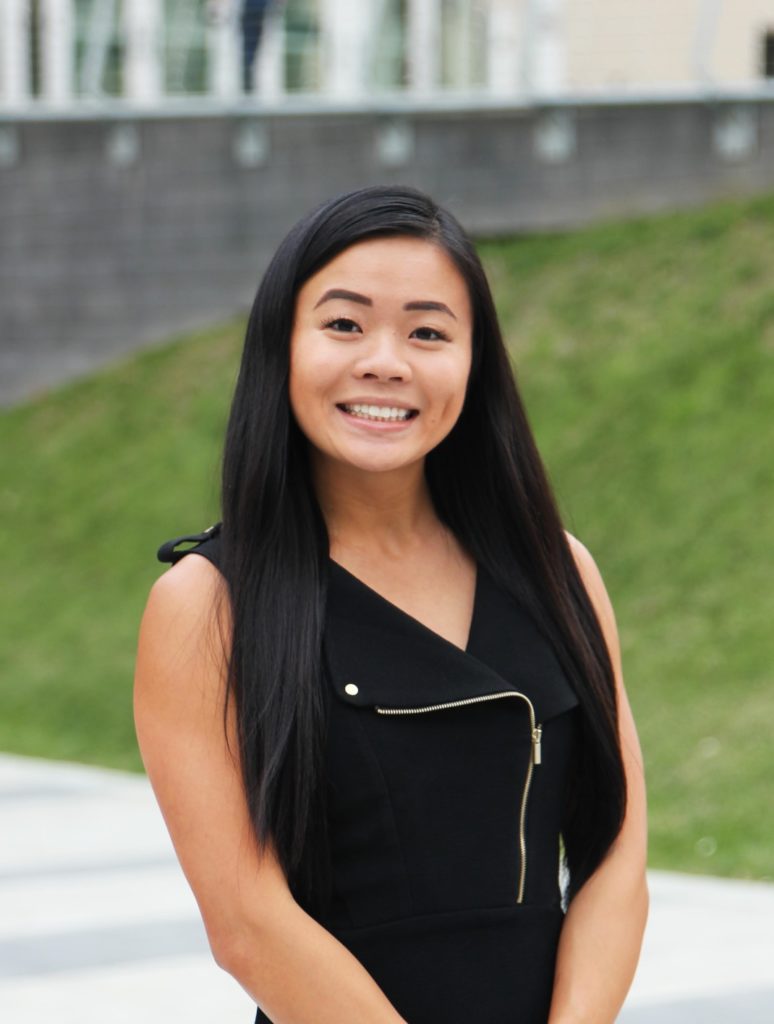
Partner SMO
JASMINE ZHAO
Jasmine Zhao is a first-generation Canadian, born and raised in Calgary, Alberta. She graduated from Chemical Engineering at the University of Calgary in 2018. She is deeply passionate about helping others and cultivating connections. As a volunteer with One Body Village Canada, a non-profit that exists to improve the lives of at risk and affected children and young women of sexual abuse and exploitation, Jasmine is an advocate for gender equality and female empowerment – her values aligning most with SDG #5. Jasmine envisions a world where every individual has access to the resources they need to reach their fullest potential.
“I am most engaged and involved with SDG 5 – Gender Equality.
Gender equality is a fundamental human right. It enables women to have the tools and skills they need to make their own decisions and take control of their lives. It gives women equal opportunity for a seat at the table, where their voices are heard. It allows women to show up unapologetically as their authentic selves. I am committed to SDG 5 because gender equality affects us all – when we empower women, we also empower families and communities, which impacts us all. Advancing gender equality bridges the gap to addressing other issues like poverty, education, and health.
Gender equality is important to me because I believe that we all have a personal responsibility to stand up for social justice and human dignity. I believe that having the privilege to be able to use my voice and to have access to opportunities that many do not, does not mean that I’ve earned it, but it means that I have the eternal responsibility to fight for social justice and human dignity, to fight for equality because I believe every individual has insurmountable and equal worth. None of us are free until we are all free.”
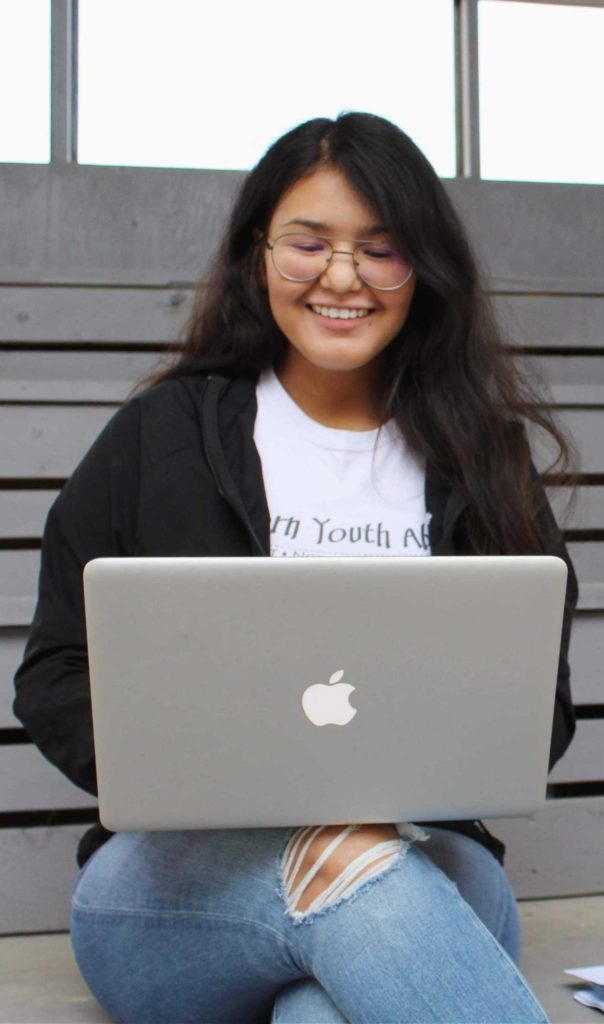
PATRICIA WEDAWIN
Patricia Wedawin is from Gameti, Northwest Territories. She is 25 years old and currently lives in Ottawa, Ontario. She moved there in 2018 for school, and graduated from the Tourism and Travel Services program at Algonquin College in October 2020. She now works full-time with a not-for-profit organization called Northern Youth Abroad, which is intended for youth of the Northwest Territories and Nunavut. Northern Youth Abroad has programs that strengthen youth’s identities and cultural understandings. ItThese programs also enhance their participation and success by providing life-changing and life-directing experiences relevant to the needs and aspirations of Northern youth.
Partner SMO

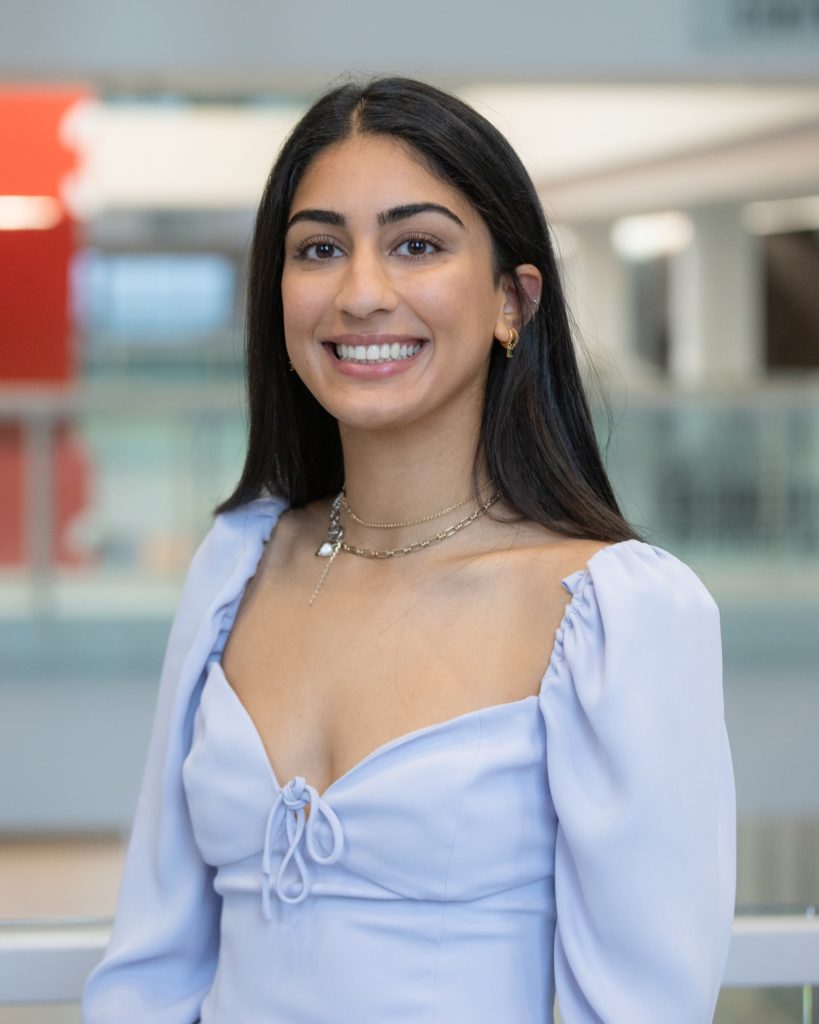
TARNBIR AULAKH
Tarnbir Aulakh is a Bachelor of Science candidate at Queens University, where she is pursuing a specialization in Kinesiology with a certificate in Creativity, Entrepreneurship, and Innovation. Post-graduation, Tarnbir aspires to attain dual MD/MPH training. As a global citizen and advocate, Tarnbir is committed to the 17 UN Sustainable Development Goals. Tarnbir’s interest in Global Health, specifically working with vulnerable populations, was inspired by opportunities within the Queens community, research projects, and motivation from her valuable mentors. As a member of this year’s Youth Champions Program, Tarnbir is eager and keen to connect with like-minded youth, educators, and SMOs across Canada.
“The SDG I feel most passionate about is SDG 3 – Good Health and Well-Being.
This SDG encompasses all individuals, including vulnerable populations. I feel as though this is a very relevant area of study in alignment with the current state of the COVID-19 pandemic. Moreover, as I hope to enter the field of Global Health and Medicine, I feel as though this will be a reoccurring theme throughout my professional career.
Health is individualized to all persons and cannot simply be seen as a ‘one size fits all’ solution. Therefore, in order to achieve this SDG, we must work collectively to find innovative solutions and actively try to reduce barriers and health inequities globally.”
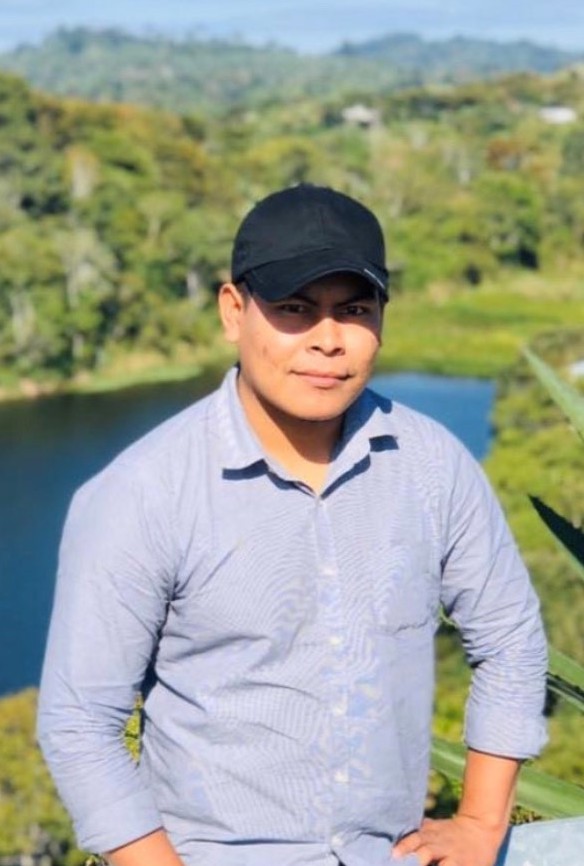
Partner SMO

TONY LLORENTE
Tony Llorente is from Tuburus, one of the remote indigenous communities in Bosawas. He studied for many years in Managua, at the high school and college level, where Change for Children sponsored his education, since there were no high school education in his area at that time. He is currently part of an innovative technological project for education implemented by Change for Children, making educational resources available to teachers and students. He is passionate about gaining new knowledge and sharing experiences. He looks forward to learning new skills and acquiring new experiences from the members involved in the program.
“My current position with Change for Children focuses on the advocacy of quality education. This goal opens doors for the successful implementation and fulfillment of other SDGs. Through the innovative technological project, we are engaged with championing children’s rights to education in a disadvantaged corner of Central America, especially, championing the restoration of indigenous peoples’ rights to their culture, tongue, and traditions.
The ultimate goals we seek to accomplish are reducing poverty (SDG #1), reinforcing gender equality (SDG #5), and restituting rights to the preservation of culture and traditions (SDG #16). For the long term, we aim to create more opportunities such as to lead to zero hunger (SDG #2) and to bring forth access to decent work and contribute to economic growth (SDG #8).
I believe that all the 17 SDG are achievable and possible only through quality education. I’m glad to be part of a project and a program which allow me to work towards the promotion and in some ways, the fulfillment of many sustainable development goals especially, in favour of my indigenous communities.”
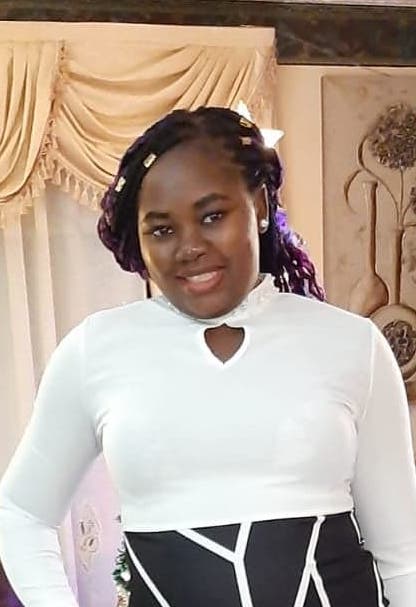
Partner SMO

VIRGINIE FLAVIE NKEUNGA TAGWA
Virginie Flavie Nkeunga Tagwa is 26 years old from Cameroon. She currently lives in Canada, more specifically in Rouyn-Noranda where she is completing her college studies in social work techniques. She is also a Global Citizenship Education Volunteer Intern at the Centre de solidarité internationale Corcovado. The Centre’s mission is to support vulnerable populations in the South in improving their living conditions by carrying out sustainable international cooperation projects in partnership with these populations. The Centre also increases the awareness of international solidarity and responsible consumption among the Abitibi-Témiscamingue population. By participating in this program, Virginie wishes to share her experience with others as well as learn and acquire the knowledge necessary to be a good leader in her community.
“The Sustainable Development Goals I would like to do public engagement activities on are:
- SDG 3, Access to good health: Some countries in the South lack adequate health care centers to take care of people and treat them properly.
- SDG 4, Access to quality education: Education is an undeniable way out of poverty. However, some people around the world do not have this opportunity. So, by making my community aware of this reality, I want concrete projects to emerge to firmly support these populations, especially children and youth who are the next generation.
- SDG 8, Access to decent work: I want to raise awareness among youth of the difficulties accessing employment for populations in countries of the Global South and encourage them to spur change, create jobs and enable their populations to have decent work. Thus, this will limit the exploitation of children.
- SDG 10, Reduced inequalities: I want to raise awareness among youth of the benefits of fair trade for producers in developing countries. By buying a fair trade product, they help ensure that producers and workers in the South have not only a prominent place in global trade, but also a living wage that reflects their efforts.
- SDG 12, Responsible consumption: I want to encourage youth to not pollute the environment as much and to consume responsibly, for example, opt for fair trade, local, reusable or compostable products.”
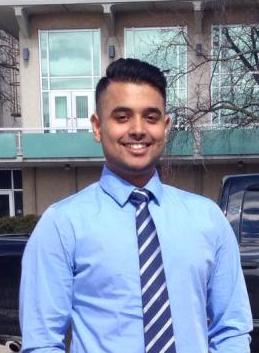
XAVIER JOHN
Xavier John, an Electrical Engineer graduate, has been working as an Administrative Support Professional and has experience and education in office administration. He came to Canada as an International student and is now a Permanent Resident. In university, he was one of the student leaders at the McMaster Catholic Student Association. He organized and managed several events for students that were a great success. He is passionate about music and loves to play guitar; he is part of a church choir and plays guitar on a regular basis. He is an ardent believer in giving back to the community; he has been actively volunteering with The Ahaan Foundation on various projects and activities in the Regina community. His zeal for customer service excellence is exemplary. He is currently working as an Assistant Manager for Ramada Hotel. He is a strong advocate for a better and more sustainable future for all and is an avid
advocate for the United Nations Sustainable Development Goals. He identifies himself as a visible minority.
Partner SMO

Footer
